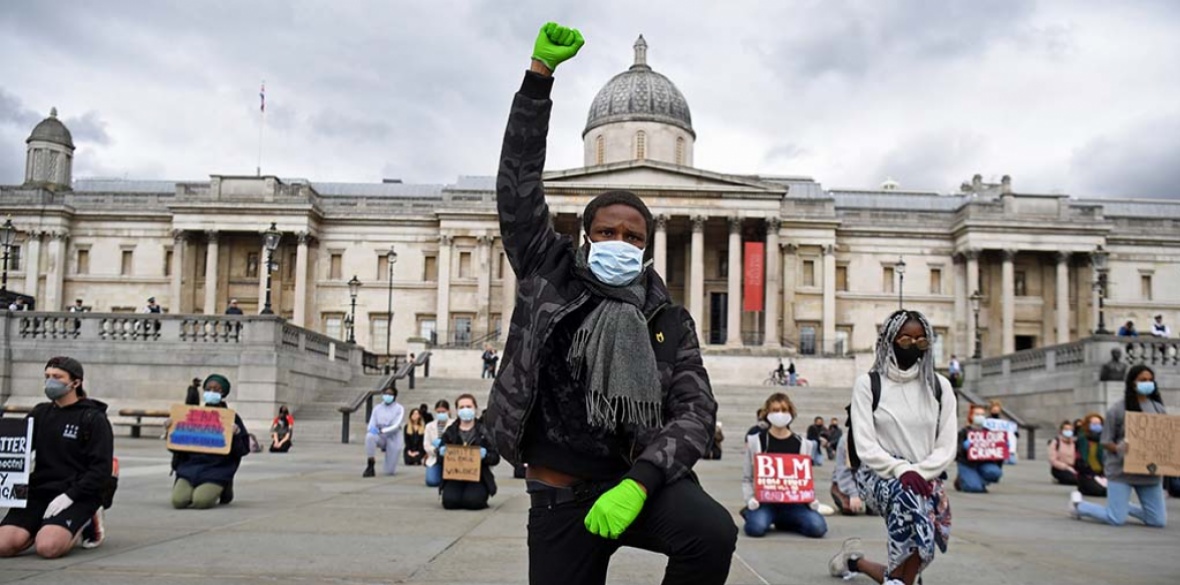This is the last article you can read this month
You can read more article this month
You can read more articles this month
Sorry your limit is up for this month
Reset on:
Please help support the Morning Star by subscribing here
THE Equality and Human Rights Commission (EHRC) is to launch an inquiry into “long-standing, structural race inequality,” which has been thrown into stark relief by the coronavirus pandemic.
Today’s announcement came as more evidence of the disproportionate impact of coronavirus on black, Asian and minority-ethnic communities was revealed.
The EHRC said the pandemic presented a “once-in-a-generation opportunity to tackle long-standing entrenched racial inequalities.”
Chairman David Isaac said the watchdog intends to use its statutory powers to address the loss of lives and livelihoods of people from different ethnic minorities.
A review by Public Health England released this week found that people from Bangladeshi backgrounds in England were twice as likely as white Britons to die from Covid-19, while other BAME groups faced an increased risk of up to 50 per cent.
The review sparked widespread criticism for failing to make recommendations or include submissions from third-party groups that had highlighted the role of systemic racism in health disparities.
Today, analysis by the PA news agency found that BAME staff account for 60 per cent of front-line healthcare worker deaths with coronavirus, despite making up just 20 per cent of the workforce in England.
Joan Saddler, director of partnerships and equality at the NHS Confederation, said BAME staff appeared more likely to work in lower-level jobs on general wards, where there might be poorer provision of personal protective equipment (PPE) than in intensive care units.
Research by the British Medical Association (BMA) also found that BAME doctors are more than twice as likely to feel pressured to visit patients without proper PPE than their white colleagues.
NHS staff survey data also shows BAME staff reporting higher levels of discrimination and harassment.
BMA chair Dr Chaand Nagpaul said: “We know there are systematic and cultural problems in the NHS that are likely contributing to this tragic and worrying trend.
“Urgent measures need putting in place to protect BAME NHS staff, including ensuring adequate and properly fitted PPE, risk assessments and redeployment to other settings if necessary.
“Immediate and longer-term work must also get underway on ending structural inequalities developing inclusive cultures where all doctors feel safe to raise concerns.
A Royal College of Nursing statement called on employers in healthcare settings to take “swift and comprehensive action” to support and protect staff, including by providing effective PPE, testing, targeted risk assessments and redeployment.
Unison head of health Sara Gorton said: “Employers must carry out risk assessments and where necessary redeploy black staff and others most affected by the virus. Protecting health has to be the priority
“Health bosses must do more to understand and address the reasons why some black staff don't feel they can raise concerns
“All staff should have access to the equipment they need to keep themselves, their families and the wider community safe. Anything less is unacceptable and will not be tolerated.”










